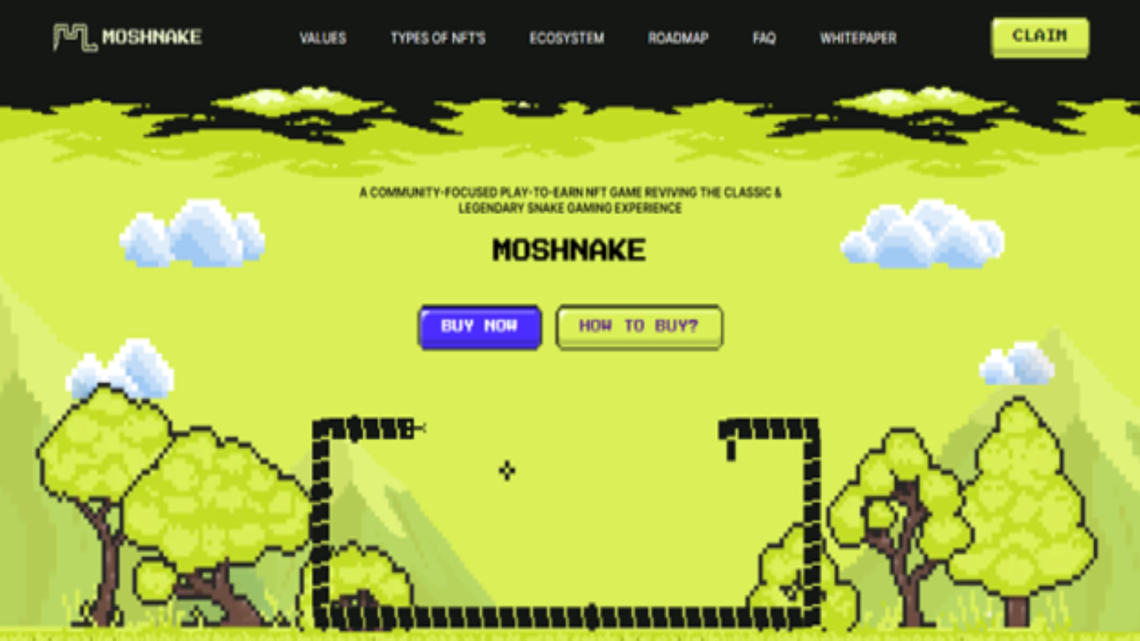Blockchain technology and the cryptocurrency market have demonstrated enormous potential for streamlining traditional validation procedures. However, they still face several adoption challenges, including security, low scalability, low interoperability, and high energy consumption.
This article focuses on Moshnake (MSH), Solana (SOL), and Harmony (ONE) and how they address the limitations of their blockchain predecessors.
Addressing Scalability Limits With Solana
Blockchain technology has evolved since bitcoin (BTC) to become more scalable in response to the rising use cases.
The Ethereum blockchain became a step ahead of the BTC network because of its smart contracts capabilities. The network was designed to support decentralized apps while handling a significant volume of crypto transactions.
However, both the Bitcoin and Ethereum blockchains are experiencing scalability problems. Yet, the Ethereum blockchain currently enjoys greater popularity among blockchain developers, with over 70% of blockchain projects being Ethereum-based.
The rising number of projects on the network caused significant scalability challenges, including high gas fees and slow transaction speed. The recent launch of Ethereum 2.0 (Merge) is expected to improve scalability by increasing the tps (transaction per second). The new upgrade is anticipated to boost the Ethereum network from 30 tps to over 100,000 tps.
But the high gas fees and slow transaction speeds forced projects and developers to shift to more efficient networks like Solana (SOL).
The Solana (SOL) network has become a formidable rival to the Ethereum (ETH) blockchain, outperforming the older cryptographic ledger in some metrics, including the number of executed transactions.
Solana (SOL) is a smart contact-enabled, proof-of-stake (PoS) network that boasts the highest throughput in the blockchain industry with an estimated optimal tps rate of 65,000. It also boasts lower transaction fees compared to the ETH network.
Developers are even more excited about the Solana (SOL) network because of its Ethereum Virtual Machine (EVM) support. The ecosystem’s developers used Neon EVM to create a compatibility layer for Ethereum projects on the Solana (SOL) blockchain. This means that it supports apps built for ETH, further fostering scalability.

Harmony: Improving Interoperability With Cross-Chain Architecture
With the hype around blockchain technology in recent years, expectations have also skyrocketed.
To fulfill these expectations, blockchain platforms aim toward a future where they complement each other. If one crypto platform delivers better transactional finality whereas another delivers better privacy, crypto users should be able to leverage the best of both worlds.
This introduces the cross-chain interoperability concept. Cross-chain interoperability refers to a blockchain platform’s ability to share data with other chains. The Harmony (ONE) protocol is one of the potential winners in this situation.
Harmony (ONE) is a decentralized Ethereum-based platform that offers tools and functionalities for developing, hosting, managing, and using DApps with optimal scalability and interoperability. The project delivers solutions to resolve blockchain’s current limitations, particularly in the Ethereum network.
Every blockchain platform contains several nodes managing different tasks, including validating network transactions, maintaining a ledger, consensus management, and much more.
According to Harmony (ONE), allowing these nodes to function in various networks is critical for interoperability. Since it already has validators, Harmony (ONE) solves the interoperability problem by integrating light clients (also known as nodes) from other blockchain platforms into their network.
Moshnake — Eliminating Energy Consumption and Environmental Blockchain Challenges

The Bitcoin (BTC) network is among the most popular blockchain systems. However, it’s a proof-of-work network that consumes a lot of energy and relies on crypto mining to validate blocks and transactions. The idea is a little outdated, given how much electricity it uses.
An estimated 100 terawatt-hours of electricity is consumed annually for BTC mining. This is greater than the energy use of several countries. Additionally, its enormous carbon footprint is estimated to be approximately 97 metric tons of CO2 produced annually.
For regulatory authorities, this has grown to be a serious source of concern. As a result, countries like China have outlawed crypto mining. This is due to the unnecessary and serious environmental harm that mining activity causes.
These scenarios have caused some crypto platforms, including new cryptocurrency, Moshnake (MSH), to shift to more energy-efficient, proof-of-stake systems.
Moshnake (MSH) is a BSC-based, play-to-earn gaming ecosystem modeled from the legendary snake game and leverages the proof-of-stake consensus mechanism. Proof-of-stake is a consensus approach that lowers the computational resources needed to operate a blockchain project.
This concept is based on the existence of a verifiable stake within the ecosystem rather than performing work as in the proof-of-work consensus.
Moshnake (MSH) isn’t just energy-efficient and eco-friendly but also allows users to earn tradable NFTs and other exciting in-game rewards. You can also learn about the ecosystem and join its ongoing presale with the link below.
Final Thoughts
Although blockchain technology appears to have several challenges, many counter-blockchain platforms exist.
Furthermore, with many businesses and organizations eager to develop and adopt the technology and invest a lot of money, it’s only a question of time before we witness a more significant transformation of these flaws.
Moshnake:
Website: https://moshnake.io
Telegram: https://t.me/MoshnakeOfficial
Twitter: https://twitter.com/moshnakeToken
Disclaimer: Any information written in this press release or sponsored post does not constitute investment advice. Thecoinrepublic.com does not, and will not endorse any information on any company or individual on this page. Readers are encouraged to make their own research and make any actions based on their own findings and not from any content written in this press release or sponsored post. Thecoinrepublic.com is and will not be responsible for any damage or loss caused directly or indirectly by the use of any content, product, or service mentioned in this press release or sponsored post.
For publishing articles on our website get in touch with us over email or one of the accounts mentioned below.


 Home
Home News
News










